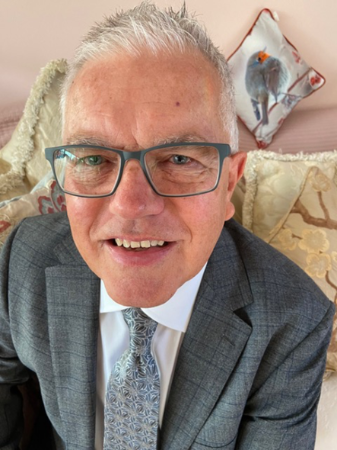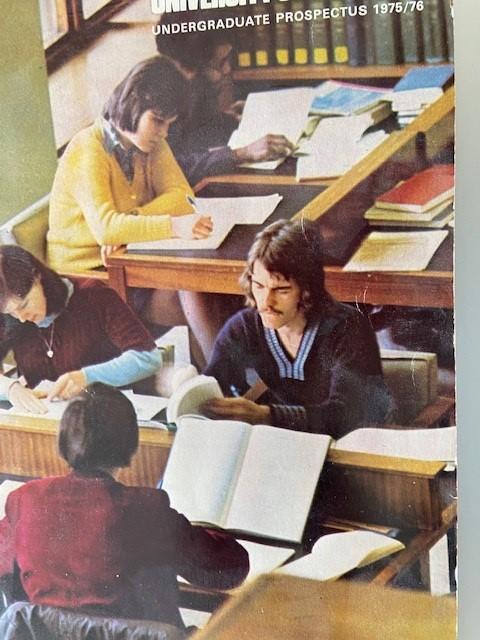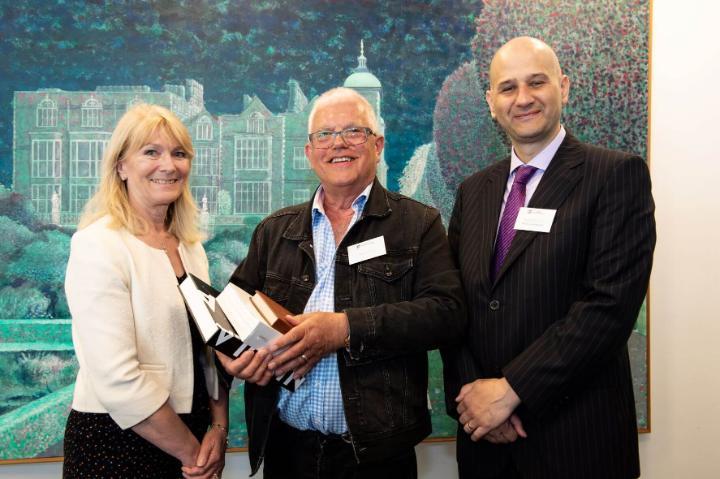Q&A Keith Long
Keith is an alumnus of the University of Bradford, having studied Pharmacy, graduating in 1975. Following his graduation, Keith took on a management position within Savory and Moore until 1978, when he became proprietor of a Pharmacy in Bournemouth. He managed this Pharmacy until 2011 and has subsequently performed locum duties throughout Dorset and Hampshire.
Throughout his career, Keith has continued to develop his knowledge within higher education. He has earned certificates from the Open University, International Business Management Institute Berlin, and Nan Yang Technological Institute in Hong Kong, to name but a few.
He was elected a Fellow of the Linnean Society in 2017 and is a Senior Associate of the Royal Society of Medicine. His interest in science is complemented by membership of the Royal Institution.
Keith supports the University as a regular donor toward the Institute of Cancer Therapeutics.

What course did you study at Bradford?
I studied the BPharm (Hons) course at the University of Bradford. When I started as part of the October 1971 intake, there were just over 100 of us on the programme. The Head of School was Professor Jack M Rowson – he was a formidable person who left us in no doubt about what would happen if we got into any trouble. There was a great emphasis on the fact that we were potentially entering an ancient profession and that a high standard of behaviour was non-negotiable. During the course, I spent two six-month periods doing my pre-registration training at respectively, University Hospital Leeds (St James’) and Glaxo Ltd in Greenford.
On our first visit to the main building, we saw the sign commemorating the creation of the University in 1966, from what had been a College of Advanced Technology. The official ceremony making Bradford a University was performed by the Chancellor – the then Prime Minister, Harold Wilson – who presented me with my Upper Second B.Pharm (Hons) on 4th July 1975 in the Great Hall.
I am personally very proud of the University of Bradfords association with Harold Wilson.
Why did you choose to come and study at the University of Bradford?
Studying in Bradford was the result of wanting to seek knowledge of other places. I was also offered a place at the then Sunderland Polytechnic, but I felt that that it was too close to home geographically and would be too similar culturally to my experiences living in Newcastle-Upon-Tyne.
It would be wrong to suggest that I had a very detailed idea about what awaited me in Bradford, but it seemed far enough away to give me an alternative view of life.
How did your time at Bradford influence your life and career?
My studies at Bradford had a profound effect on me. I realised that I was going to be a member of a distinguished profession, and that I would have to live up to its standard and codes of behaviour. It has been a pleasure to have this core value system throughout my working life. Socially, I feel that I represent the profession and endeavour to reflect its standard in what I am seen to do.
What are your favourite memories from your time at the University of Bradford?
One highlight from my time at Bradford was the day Harold Wilson was required as Chancellor, to confer an Honorary Degree upon his political opponent, the then Prime Minister Edward Heath. Security was everywhere, and the more politically motivated students – not just those from the University of Bradford – were determined to make their presence felt and to be heard!
The power cuts in 1973 cannot be overlooked either. There were dock strikes and other union activities during that time – this resulted in me studying under a corridor light in Dennis Bellamy Hall for quite a time.
Trying to get to N4 in the Richmond Building at 9am was a challenge. There was always a big queue for the lifts, so there was a calculation to be made as to whether one should use the stairs (a foreboding challenge up 11 floors) or take a chance with the lift – Professor Rowson did not look kindly on latecomers.
The Union Bar, later to become the Steve Biko bar, was a bristling place, providing the core of our diet. Cheeseburgers were the meal of choice, together with a pint of Tartan or Webster’s.
Living in Hall could be fun. People would ‘bump‘ the lift so that the doors didn’t open on a floor, enraging those waiting to get in. On one occasion a boy went home for the weekend, and on his return, he found the entire contents of his room in the lift.
No mention of Bradford can omit the many visits to the curry houses. It would be a bad day which did not include a curry together with the inevitable plateful of chapatis.

Keith Long pictured on the cover of the 1975/76 undergraduate prospectus
If you could give your younger self any advice, what would it be?
If I was to give any advice to myself, it would be to have more confidence about what I could achieve in my life. On occasion I have been encouraged to go into politics and other areas of life, but the idea that I could progress to what is perceived as higher levels of achievement always caused me to question myself and whether I was talented or experienced enough to do so.
Socrates said that wisdom comes from realising what you don’t know, or at least knowing that you know very little. I took this a little too literally and discounted possibilities too easily. I have come to realise that many people who are seen as experts only in fact demonstrate an ability to discuss minute aspects of topics, and their great mistake is to talk about subjects on which they lack expertise. I feel, as a young Bradford graduate, I would have gone into my career and pursued more opportunities with confidence and ambition if I had this frame of my mind at an earlier age.
What inspired you to donate to the University of Bradford?
I am an enthusiastic supporter of anything which promotes knowledge. I am pleased to contribute to the University as I want to encourage new generations also to value the development of ideas. It reminds me of the Latin phrase ‘Urbs Sapientia Conditur’ (The City is founded on Wisdom).

Keith Long with Vice Chancellor, Professor Shirley Gongdon, and Deputy Vice-Chancellor Professor Zahir Irani
Universities are an important melting pot for new ideas and diversity of thought, and I am pleased to contribute to the University of Bradford which encompasses so many aspects of learning and personal development.
What would you say to fellow alumni who may be considering donating to the University?
Conventional attitudes towards education, its content, and its place in society are being challenged in a way that we have not seen before. The cornerstone of knowledge acquisition and the accumulation of collective wisdom must be supported.
I feel the main target for this is the range of universities across the world. There are many anti-science groups for instance, which are determined to undermine progress in many areas. We must be fearless in supporting the scientific method and the development of all the disciplines which universities can facilitate.
There are also many challenges to the development of healthcare. None of these is greater than that of fighting the scourge of cancer. Having worked in the environment of oncology I am very aware of the cost of research into any meaningful developments. There can be few better things to do than to contribute to the activities of the Institute of Cancer Therapeutics at Bradford, by way of a donation.
Supporting this cause at the University is something with which I am proud to be associated, and I would encourage anyone to consider becoming involved. Those of us who are fortunate to be able to do so would be performing a great service to the world by supporting these endeavours in whichever way they can.
